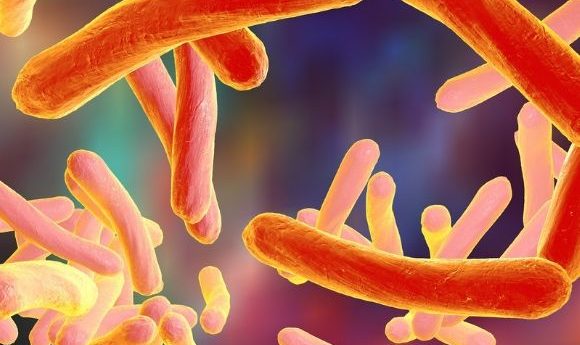Do gut bacteria eat drugs too?

New research demonstrates that a species of gut-resident bacteria can metabolize levodopa – the common Parkinson’s disease pharmacotherapy. This finding could have implications for the microbiome’s impact on the activity and effectiveness of drugs.
The bacteria in our gut – our ‘gut microbiome’ – are critical for many processes, such as the breakdown of complex substances in the foods we eat. However, new research, focusing on the effects of gut bacteria on the primary Parkinson’s disease drug levodopa (L-DOPA), has demonstrated that these bacteria may negatively affect the activity of drugs as well.
Maini Rekdal, first study author from the Department of Chemistry and Chemical Biology at Harvard University (MA, USA), commented that the interaction of gut bacteria with drugs could have consequences such that: “Maybe the drug is not going to reach its target in the body, maybe it’s going to be toxic all of a sudden, maybe it’s going to be less helpful.”
Parkinson’s disease is a motor disorder resulting from the death of a select group of dopaminergic neurons in the motor center of the brain. L-DOPA is the precursor to dopamine and gets converted into dopamine in brain regions where Parkinson’s disease-related neurodegeneration has occurred. However, the penetration of L-DOPA to these brain regions can be as low as 1%.
An adjunct therapy – carbidopa – is often prescribed alongside L-DOPA to inhibit the enzyme in the body’s periphery that metabolizes L-DOPA and so limit the metabolism of L-DOPA outside of the brain. This aims to increase the proportion of L-DOPA reaching the desired brain regions.
However, as Rekdal noted, even with carbidopa, “…there’s a lot of metabolism [of L-DOPA] that’s unexplained, and it’s very variable between people.” Variation in brain L-DOPA penetration can mean that the efficacy of L-DOPA, as a therapy, varies markedly between patients. Further, L-DOPA conversion into dopamine outside of the brain can have adverse effects on patients’ gastrointestinal health.
Previous research observed that patients who take antibiotics alongside L-DOPA display improved responses to L-DOPA. Based on this, researchers in this study investigated whether gut bacteria may contribute to extra-brain metabolism of L-DOPA.
Knowing that the bacterium Lactobacillus brevis produces an enzyme capable of converting L-DOPA into dopamine, the team employed The Human Microbiome Project to identify all gut-resident bacteria that produce enzymes similar to the L. brevis enzyme and so may contribute to L-DOPA metabolism.
“All of this suggests that gut microbes may contribute to the dramatic variability that is observed in side effects and efficacy between different patients taking L-DOPA.”
Enterococcus faecalis was the only gut bacteria species identified that systematically metabolized all provided L-DOPA, in every trial. This provided the first evidence linking E. faecalis and the bacterial enzyme – PLP-dependent tyrosine decarboxylase (TyrDC) – to the metabolism of L-DOPA.
The team is uncertain as to why TyrDC in the gut is not also inhibited by carbidopa; a potential explanation may be that TyrDC has a slight, but essential, difference in its structure to the human enzyme that converts L-DOPA into dopamine, preventing its inhibition by carbidopa.
However, researchers discovered a small molecule – s-α-Fluoromethyltyrosine (AFMT) – that was capable of inhibiting TyrDC.
Rekdal stated: “The molecule turns off this unwanted bacterial metabolism without killing the bacteria; it’s just targeting a non-essential enzyme.”
The discovery of AFMT may serve as a starting point for the development of novel therapeutic targets for improving the efficacy of L-DOPA therapy in Parkinson’s disease patients.
Researchers went on to identify a second species of gut-resident bacteria – Eggerthella lenta – that can metabolize dopamine, yielding meta-tyramine in the process. This was achieved by supplying dopamine to microbes from fecal samples and observing which species prospered.
Meta-tyramine may be responsible for some of the extra-brain, adverse effects that occur with L-DOPA therapy.
Emily Balskus (Harvard University) commented that: “All of this suggests that gut microbes may contribute to the dramatic variability that is observed in side effects and efficacy between different patients taking L-DOPA.”
These effects of the microbiome are likely not limited to L-DOPA and Parkinson’s disease and further research is required to investigate the more wide-ranging effects of gut bacteria on drug activities.